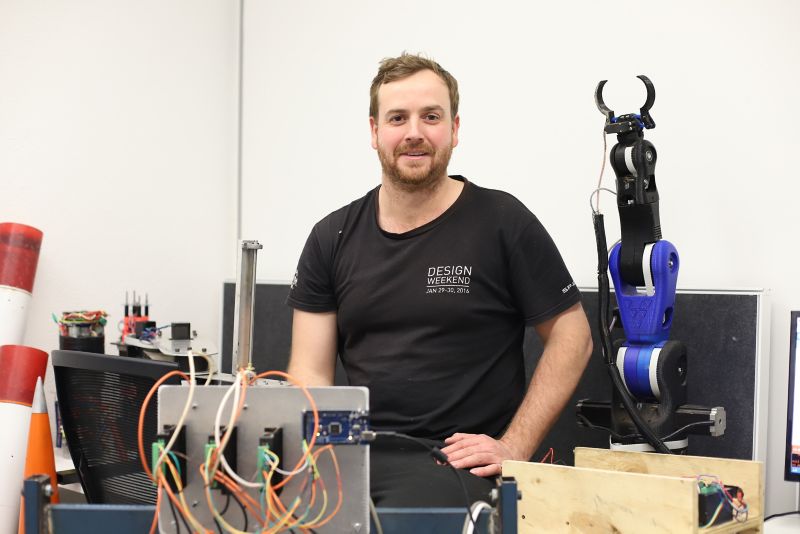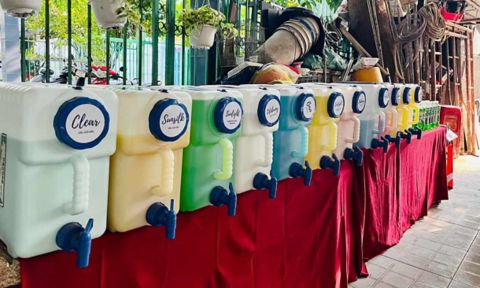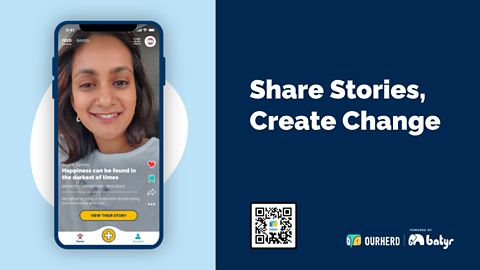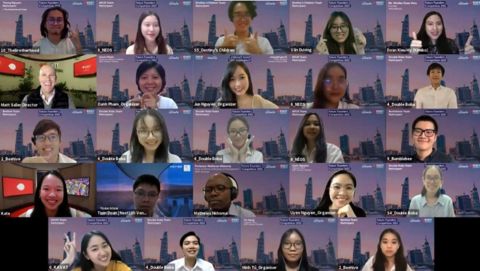Currently, the waste produced in the West drastically outweighs that of third-world countries. VicHyper’s invention seeks to make people more conscious of the amount of waste they produce.
Here is how it works – when taking their rubbish out, people can tap their phones on VicHyper’s specially engineered bin to start analysing the output. The machine uses robotic arms to sort out the rubbish and sends this data back to your mobile phone.
The most attractive part? If anything thrown out is worth money, you get paid.
“We will also give the data back to the council to see what kind of waste is going to the bin, how much is produced and which socioeconomic level is producing the most,” said Zac.
“It would be very interesting to see legitimate data instead of overarching data across the country.”
Creating such an advanced system comes with its fair share of obstacles. It’s where complex theoretical concepts come into play in order to innovate a technology that has yet to exist.
For a hands-on learner like Zac, theory is something he struggles with.
At the moment, he is researching a technique that uses laser to burn a bit of material to create plasma. This produces a light and a spectrometer identifies the material by analysing the ray of light.
“Without theory, you can’t figure that out. It’s so interesting but you just need to know it,” said Zac.
However, he is relentless about learning what he needs to know. A huge believer in upskilling, Zac is constantly taking online courses in areas of coding, chemistry, physics and mathematics in order to build the vision of VicHyper.
As challenging as it is, Zac’s motivation comes from a deep-rooted desire for his business to make a difference.
“The way businesses are conducted across the globe is not great - it’s all about profit margins instead of helping people,” he said.
“Creating a multipronged business that helps people and the environment and also being able to work hard, I think it’s great.”
Zac’s hardworking nature plays to his advantage as a startup founder, something he advises aspiring entrepreneurs to pick up.
“Be willing to work 80-100 hours a week, and be happy to be called a nerd,” he said with a grin.
In the meantime, this nerd will be building robotic arms back at the farm – that is, when he’s not busy flying planes with Dad.




